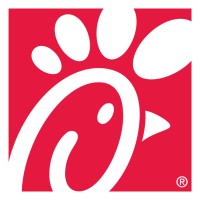
SONIC
SONIC®, America’s Drive-In®, is part of the Inspire Brands family of restaurants. Inspire is a multi-brand restaurant company whose portfolio includes more than 8,300 Arby’s, Buffalo Wild Wings, and SONIC locations worldwide.



SONIC®, America’s Drive-In®, is part of the Inspire Brands family of restaurants. Inspire is a multi-brand restaurant company whose portfolio includes more than 8,300 Arby’s, Buffalo Wild Wings, and SONIC locations worldwide.

At its Atlanta headquarters, known as the Corporate Support Center, Chick-fil-A, Inc. offers full-time careers in various fields such as Digital Transformation & Technology, Financial Services & Accounting, Enterprise Analytics, Restaurant Development, Early Talent Programs and more. Our team of more than 3,000 staff members tackles complex challenges every day — from restaurant design to food innovation, to infusing personalized service into digital spaces — all with the intent of supporting our owner-operators in delivering customer experiences defined by hospitality and care. Chick-fil-A, Inc. is the third largest quick-service restaurant company in the United States, known for its freshly-prepared food, signature hospitality and unique franchise model. More than 200,000 Team Members are employed by independent owner-operators in more than 3,000 restaurants across the United States, Canada, and Puerto Rico. In 2023, the company shared plans to expand by 2030 into Europe and Asia. Chick-fil-A owner-operators live and work in the communities their restaurants serve, each supporting local efforts to address hunger, education, and making a positive impact. The family-owned and privately held company was founded in 1967 by S. Truett Cathy.
Security & Compliance Standards Overview












No incidents recorded for SONIC in 2025.
No incidents recorded for Chick-fil-A Corporate Support Center in 2025.
SONIC cyber incidents detection timeline including parent company and subsidiaries
Chick-fil-A Corporate Support Center cyber incidents detection timeline including parent company and subsidiaries
Angular is a development platform for building mobile and desktop web applications using TypeScript/JavaScript and other languages. Prior to versions 19.2.16, 20.3.14, and 21.0.1, there is a XSRF token leakage via protocol-relative URLs in angular HTTP clients. The vulnerability is a Credential Leak by App Logic that leads to the unauthorized disclosure of the Cross-Site Request Forgery (XSRF) token to an attacker-controlled domain. Angular's HttpClient has a built-in XSRF protection mechanism that works by checking if a request URL starts with a protocol (http:// or https://) to determine if it is cross-origin. If the URL starts with protocol-relative URL (//), it is incorrectly treated as a same-origin request, and the XSRF token is automatically added to the X-XSRF-TOKEN header. This issue has been patched in versions 19.2.16, 20.3.14, and 21.0.1. A workaround for this issue involves avoiding using protocol-relative URLs (URLs starting with //) in HttpClient requests. All backend communication URLs should be hardcoded as relative paths (starting with a single /) or fully qualified, trusted absolute URLs.
Forge (also called `node-forge`) is a native implementation of Transport Layer Security in JavaScript. An Uncontrolled Recursion vulnerability in node-forge versions 1.3.1 and below enables remote, unauthenticated attackers to craft deep ASN.1 structures that trigger unbounded recursive parsing. This leads to a Denial-of-Service (DoS) via stack exhaustion when parsing untrusted DER inputs. This issue has been patched in version 1.3.2.
Forge (also called `node-forge`) is a native implementation of Transport Layer Security in JavaScript. An Integer Overflow vulnerability in node-forge versions 1.3.1 and below enables remote, unauthenticated attackers to craft ASN.1 structures containing OIDs with oversized arcs. These arcs may be decoded as smaller, trusted OIDs due to 32-bit bitwise truncation, enabling the bypass of downstream OID-based security decisions. This issue has been patched in version 1.3.2.
Suricata is a network IDS, IPS and NSM engine developed by the OISF (Open Information Security Foundation) and the Suricata community. Prior to versions 7.0.13 and 8.0.2, working with large buffers in Lua scripts can lead to a stack overflow. Users of Lua rules and output scripts may be affected when working with large buffers. This includes a rule passing a large buffer to a Lua script. This issue has been patched in versions 7.0.13 and 8.0.2. A workaround for this issue involves disabling Lua rules and output scripts, or making sure limits, such as stream.depth.reassembly and HTTP response body limits (response-body-limit), are set to less than half the stack size.
Suricata is a network IDS, IPS and NSM engine developed by the OISF (Open Information Security Foundation) and the Suricata community. In versions from 8.0.0 to before 8.0.2, a NULL dereference can occur when the entropy keyword is used in conjunction with base64_data. This issue has been patched in version 8.0.2. A workaround involves disabling rules that use entropy in conjunction with base64_data.